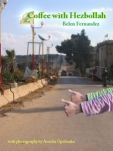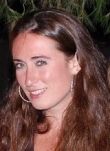
Publisher:
Bonnie King
CONTACT:
Newsroom@Salem-news.com
Advertising:
Adsales@Salem-news.com

~Truth~
~Justice~
~Peace~
TJP
Jun-09-2010 04:41

 TweetFollow @OregonNews
TweetFollow @OregonNews
'They Looked in my Hair and Under my Tongue'
Belén Fernandez Salem-News.com"I only cried when I saw that journalist Cevdet Kılıçlar had been shot." - Turkisn journalist Ayşe Sarıoğlu
 IDF duties also include checking for gum in the mouths of international journalists. |
(ISTANBUL) - Yesterday I posted excerpts from the first part of the Turkish daily Taraf’s two-part interview with 27-year-old journalist Ayşe Sarıoğlu, recounting her experience during last week’s attack on the Mavi Marmara. Following is my (rough) translation of excerpts from the second part of the interview, which starts with the boat’s forced docking at Ashdod port and recounts the imprisonment of the passengers on board.
Highlights include a question from a prison official interrogating Sarıoğlu as to whether she would consider herself prone to suicidal thoughts, as though this might explain why someone would join a humanitarian aid mission to Gaza.
[Taraf’s questions are in bold; Sarıoğlu’s responses follow]
» When you all arrived to Ashdod port, how were you taken off the boat?
I was one of the first people off the boat, as I was sitting in front… Two young girls escorted me, one on each side… They told me they were 18 years old and were doing their compulsory military service. They searched my entire body. They looked in my mouth; I had gum. They checked inside and outside my undergarments; with their hands and a metal detector they looked everywhere. Then they told me to take off my T-shirt. Of course, the Israeli press had also arrived and were taking pictures of me… Then [the soldiers] took me to a changing room to take off my pants… [There] they searched me with a [metal] detector. I took off my socks. They looked between my toes. They looked at the soles of my feet. After that it was time for my interrogation.
…
» How did the interrogation go? What did they ask?
A man who knew Turkish very well—as well as you or me—was present at my interrogation. His Hebrew was not that good; you could tell he was struggling when he spoke. I actually said to him: “It seems you’re an Istanbul Jew.” He didn’t answer, but I’m sure he was. He translated [during the interrogation]. It was conducted by a plainclothes policewoman and a uniformed policeman. The woman was nice, the man was really rude. He was extremely contemptuous and impolite. He stuck out his tongue [at me]. He called me “idiot.” … [When I said] I hadn’t eaten anything all day [due to] nerves, he laughed and made fun of me, saying: “Oh, the poor thing hasn’t eaten.”
» [The experience] must have been totally nervewracking… Did you ever cry during the raid [on the Mavi Marmara] or while you were being taken to jail?
I only cried when I saw that journalist Cevdet Kılıçlar had been shot.
…
» What did [the Israeli police] ask you during the inerrogation?
They asked if I knew that [as a passenger on the Mavi Marmara] I had entered a closed military zone without permission. I told them: “No I didn’t, I was in international waters.” They said: “You were 10 miles [from Israel] when you were caught.” I said I was not, [as] I thought we had been somewhere in the vicinity of 78 miles… They asked me why I had come to Israel without permission. I said: “I didn’t come to Israel, I was kidnapped to Israel. I was brought here by force. If you had asked me I wouldn’t have come.”…
» Did they make you sign something?
[They presented me with a paper with] some things written on it. They asked me to sign it.
» Was it in Turkish?
No, Hebrew. I didn’t sign… I said: “I can’t sign something I don’t understand.” They showed me… two pieces of paper, one in English and one in Turkish. “This is what the paper says,” they told me. I asked: “How do I know that’s true?” They said: “Because we have a translator.” I replied: “In that case I request my own translator [appointed by] my ambassador. I don’t trust you.” They told me it did not make any difference whether I signed or not, as I was going to be deported anyway.
…
» What happened when you didn’t sign?
They said it didn’t matter and took me to the doctor to be examined. He took my blood pressure and said I was fine… He took my fingerprints. [Israeli soldiers] kept asking me repeatedly if I had been to Israel previously or not. Whenever I said “no” the soldiers made fun of me, saying: “But my friend saw you.” They stuck their tongues out at me, they spit at my feet. I couldn’t believe it. It was such inhuman behavior, so childish, so ridiculous…
» When did they tell you that you were going to be taken to prison?
After the interrogation. They said: “A few days in jail will probably make you sign this paper.”… Then I was subjected to another full body search… I actually had a USB and a photo card in my pocket [that hadn’t been found during the previous search]. “Thank god these were saved,” I had been thinking… [But] the final search was far more intense… They took my pants off and looked in all the pockets. They looked in my hair, they looked at my gums, they looked under my tongue… Then they put us on buses to prison…
…
» What is the Beersheba prison like?
It’s a huge prison… [An official at Beersheba] asked me questions: “Do you have any drug addictions? Do you use any medicines?” Then: “Do you belong to any terrorist organizations like Al Qaeda or Hamas?” I said: “I assume you are joking.”… They continued: “Do you have family in Palestine? Have you ever been to Israel before? Have you ever been to Palestine? Do you have close Palestinian friends?”
» Do you?
No. I said no to everything. Then they asked if I had suicidal inclinations at the moment. “What kind of a question is that?” I asked. They asked how my family was. I said: “They are presumably distraught…” They said: “No, no, how were they when you were leaving [for Gaza]?”…
…
» Were you able to sleep [in prison]?
And how! We went to sleep at 3.30 [in the morning] and were awakened at 7.30. The guard shone a light in my face. I couldn’t understand at first where I was. I stood up and then fell back on the bed. The guard said: “Where do you think you are? This is prison, you’re going to get up.” We got up immediately. The doors to everyone’s [cells] were opened and we all went down to the common area [of the prison]. There [all the women] who had been on the boat [were able to] see each other and talk, [asking questions like]: “You’re here? Is so-and-so okay? Is there any news about so-and-so?”
…
» Was any explanation given to you all [by prison officials, regarding your current situation]?
No, no explanation was given. We knew that we were entitled to a lawyer and to make telephone calls. When we made these requests we were told: “Not now.” Okay, so when? Answer: Whenever it is necessary… Then officials started arriving from some countries’ embassies, but not from the Turkish one at first…
» When did Turkish embassy authorities come?
…[A representative came] the following afternoon… She couldn’t give us much information… She said the ambassador had called Ankara. She told us about the meeting of the United Nations. She herself was stunned…
» Were you [eventually] permitted to call your family?
I was permitted to call, but the call couldn’t exceed one minute and I had to speak in English…
…
» Were you aware at the time of Ankara’s diplomatic maneuvers?
We only heard about them from embassy officials from other countries. Of course there was a lot of disinformation… Up until the last minute we had no idea when we would be released… [The morning of our release] we were awakened at 6.00. [The Israelis] gave us our passports and we were put on buses and taken to Ben Gurion Airport… Every time another passenger [from the Mavi Marmara] boarded the plane… we rejoiced and hugged each other.
» How long did you wait on the plane?
15 or 16 hours.
» Did you know why you were waiting?
Israel was still holding some people. We made the group decision that, until everyone was released, we were not going to move. The [Turkish] government was conducting these negotiations and we were waiting for the results.
» Were the people that were still being held Bülent Yıldırım and other officials from IHH [the humanitarian aid organization that had helped organize the Gaza convoy]?
They were being held; there were also some foreigners… Since we were on a Turkish Airlines plane we were calm and felt like we were on Turkish soil. And the hostesses entertained us; they even gave us perfume since we hadn’t taken baths…
…
» After living through all of this, would you join another expedition to break the siege of Gaza?
Definitely. I can’t begin to describe how happy I was when I saw the newspapers upon returning [to Turkey]. Even the fact that Egypt opened the Rafah border crossing, which I know very well was a symbolic move… makes me think this trip was important. It was important to focus the world’s attention on the problem [of Gaza].
==========================================================

 Belén is a feature writer at Pulse Media. Her articles also have appeared in CounterPunch, Narco News, Palestine Chronicle, Palestine Think Tank, Rebelión, Tlaxcala, The Electronic Intifada, Upside Down World, and Venezuelanalysis.com. Her book “Coffee with Hezbollah,” a humorous political travelogue chronicling her hitchhiking trip through Lebanon in the aftermath of the 2006 Israeli assault, is available at Amazon, Amazon UK, and Barnes and Noble.
Belén is a feature writer at Pulse Media. Her articles also have appeared in CounterPunch, Narco News, Palestine Chronicle, Palestine Think Tank, Rebelión, Tlaxcala, The Electronic Intifada, Upside Down World, and Venezuelanalysis.com. Her book “Coffee with Hezbollah,” a humorous political travelogue chronicling her hitchhiking trip through Lebanon in the aftermath of the 2006 Israeli assault, is available at Amazon, Amazon UK, and Barnes and Noble.
Born in Washington, DC, in 1982, Belén earned her bachelor's degree with a concentration in political science from Columbia University in New York City. Her diverse background of worldwide experiences, created a fantastic writer; one whose work we are extremely happy to share with Salem-News.com viewers. You can contact Belén at: belengarciabernal@gmail.com
Articles for June 8, 2010 | Articles for June 9, 2010 | Articles for June 10, 2010

googlec507860f6901db00.html
Salem-News.com:



Terms of Service | Privacy Policy
All comments and messages are approved by people and self promotional links or unacceptable comments are denied.
[Return to Top]
©2025 Salem-News.com. All opinions expressed in this article are those of the author and do not necessarily reflect those of Salem-News.com.